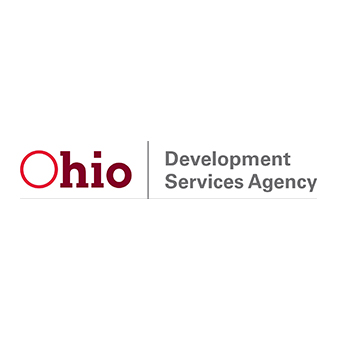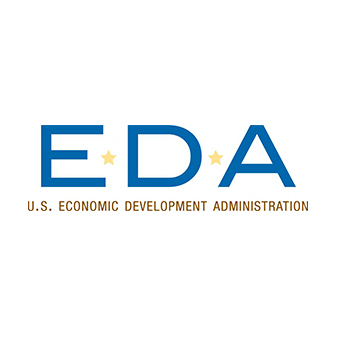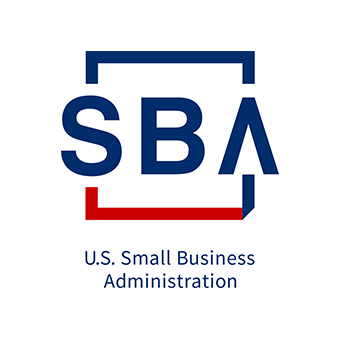COVID-19 Business Recovery Resource Center
The Small Business Development Center (SBDC), Procurement Technical Assistance Center (PTAC), TechGROWTH Ohio, Leveraging Gateways and Hubs (LIGHTS), and the Social Enterprise Ecosystem (SEE), all part of Ohio University’s Voinovich School of Leadership and Public Service, are working with small and local, private and non-profit business owners to use the following resources available from the state and federal government to help keep their businesses afloat during the pandemic.
The Innovation Center, part of the Ohio University Vice President for Research unit, is also working virtually to guide businesses through this difficult time. Additionally, Innovation Center on-site spaces and equipment are open and available for essential businesses. Contact the Innovation Center.
Small Business Administration
The SBA will continue to support small businesses through this difficult time. Follow @SBA_Columbus on Twitter or sign up for their newsletter for more updates.
To be connected to the Small Business Administration or your local Manufacturing Extension Partnership organization, Procurement and Technical Assistance Center, Minority Business Assistance Center or Small Business Development Center, please call 1.833.BIZ.OHIO (1.833.249.6446).
Ohio Development Services Agency Office of Small Business Relief
The Office of Small Business Relief (OSBR) is focused on identifying and providing direct support to the state's nearly 950,000 small businesses to help during the current public health crisis and to position them for a strong rebound.
Coronavirus Aid, Relief, and Economic Security (CARES) Act
The programs and initiatives in the Coronavirus Aid, Relief, and Economic Security (CARES) Act that was passed by Congress on March 27, 2020 are intended to assist business owners with whatever needs they have right now. When implemented, there will be many new resources available for small businesses, as well as certain non- profits and other employers. This guide provides information about the major programs and initiatives that will soon be available from the Small Business Administration (SBA) to address these needs, as well as some additional tax provisions that are outside the scope of SBA.
Small Business Owner’s Guide to the CARES Act (PDF)
Economic Injury Disaster Loan Advance
The CARES Act provided additional assistance for small business owners and non-profits, including the opportunity to get up to a $10,000 Advance on an Economic Injury Disaster Loan (EIDL).
This Advance may be available even if your EIDL Loan application was declined or is still pending, and will be forgiven.
If you wish to apply for the Advance on your EIDL Loan, fill out a new, streamlined application. In order to qualify for the Advance, you need to submit this new application even if you previously submitted an EIDL Loan application. Applying for the Advance will not impact the status or slow your existing application.
Paycheck Protection Program
The CARES Act establishes a new $349 billion Paycheck Protection Program (PPP). The Program will provide much-needed relief to millions of small businesses so they can sustain their businesses and keep their workers employed.
Starting Friday, April 3, businesses can go to a participating SBA 7(a) lender, bank, or credit union, apply for a loan through the PPP, and be approved on the same day. The loans will be forgiven as long as the funds are used to keep employees on the payroll and for certain other expenses. Starting Friday April 3, 2020, small businesses and sole proprietorships can apply. Starting April 10, 2020, independent contractors and self-employed individuals can apply. Businesses are encouraged to apply quickly as the program has a funding cap.
The new loan program will be available retroactive from Feb. 15, 2020, so employers can rehire their recently laid-off employees through June 30, 2020.
More information on the PPP by following the links below:
SBA CARES Act PPP Press Release
Small Business Paycheck Protection Program Overview
SBA Overview of Paycheck Protection Program
Paycheck Protection Program Information Sheet: Borrowers
Paycheck Protection Program Application Form
Paycheck Protection Program Information Sheet: Lenders
Economic Injury Disaster Loans
SBDC is working with the State of Ohio and SBA regarding an official Disaster Declaration for the State of Ohio. The declaration was made on March 19, 2020 and businesses can now apply for the Economic Injury Disaster Loans (EIDL), which are funded through the US Treasury and do not involve banks.
EIDL will offer up to $2 million in assistance to each business, providing vital economic support. The interest rate is 3.75% for small businesses and 2.75% for non-profits. The term of the loan will be determined on a case-by-case basis, based upon each borrower’s ability to repay. SBA does offer loans with long-term repayments to keep payments affordable, up to a maximum of 30 years.
This low interest loan is intended to assist businesses with working capital so that they can meet payroll requirements and cover fixed expenses.
Businesses owners are encouraged to apply immediately. They are also encouraged to apply online because paper applications will slow the process down.
Following is some of the information required to complete the application:
- Completed SBA Loan application
- Tax Information Authorization for the applicant, principals, and affiliates
- Complete copies of the most recent Federal Income Tax Return (including all schedules)
- If 2019 Federal Income Tax Return has not been filed, you will need a year end profit and loss statement and balance sheet.
- Schedule of Liabilities
- Personal Financial Statement
- Current Year-to-Date Profit and Loss statement
For additional information, please contact the SBA disaster assistance customer service center. Call 1.800.659.2955 (TTY: 1.800.877.8339) or e-mail disastercustomerservice@sba.gov.
SBDC will be available to help fill out the EIDL application and help compile documents for the loan.
SBA’s Economic Injury Disaster Loans (EIDL) - FAQ Sheet (PDF)
SBA Economic Injury Disaster Loan One-Pager (PDF)
Access to Capital
For more information on SBA loans and contact the Ohio University SBDC to assist with identifying a lender as well as assistance with development of the required financing package.
- 7(a) program offers loan amounts up to $5,000,000 and is an all-inclusive loan program deployed by lending partners for eligible small businesses within the U.S. States and its territories. The uses of proceeds include: working capital; expansion/renovation; new construction; purchase of land or buildings; purchase of equipment, fixtures; lease-hold improvements; refinancing debt for compelling reasons; seasonal line of credit; inventory; or starting a business.
- Express loan program provides loans up to $350,000 for no more than 7 years with an option to revolve. There is a turnaround time of 36 hours for approval or denial of a completed application. The uses of proceeds are the same as the standard 7(a) loan.
- Community Advantage loan pilot program allows mission-based lenders to assist small businesses in underserved markets with a maximum loan size of $250,000. The uses of proceeds are the same as the standard 7(a) loan.
- 504 loan program is designed to foster economic development and job creation and/or retention. The eligible use of proceeds is limited to the acquisition or eligible refinance of fixed assets.
- Microloan program involves making loans through nonprofit lending organizations to underserved markets. Authorized use of loan proceeds includes working capital, supplies, machinery & equipment, and fixtures (does not include real estate). The maximum loan amount is $50,000 with the average loan size of $14,000.
Natural Capital Investment Fund COVID-19 Grant Fund - It looks to be highly competitive. Eligible companies should apply immediately. If you have any questions, please contact them directly.
Appalachian Growth Capital
JobsOhio made a $2 million investment in the Appalachian Growth Capital, LLC (AGC), to help more small companies in Appalachian Ohio with financing during this economically difficult time. JobsOhio’s assistance to Appalachian Growth Capital is part of their strategy to focus on areas of Ohio that have been hit hardest and this program help boost its sustainability at a time when small businesses in the region need reliable capital and partnerships to move forward.
AGC COVID-19 Loan Application and Process
Exporting Assistance
SBA provides export loans to help small businesses achieve sales through exports and can help these businesses respond to opportunities and challenges associated with trade, such as COVID-19.
The loans are available to U.S. small businesses that export directly overseas, or those that export indirectly by selling to a customer that then exports their products.
- ExportExpress loan program allows access to capital quickly for businesses that need financing up to $500,000. Businesses can apply for a line of credit or term note prior to finalizing an export sale or while pursuing opportunities overseas, such as identifying a new overseas customer should an export sale be lost due to COVID-19.
- Export Working Capital program enables small businesses to fulfill export orders and finance international sales by providing revolving lines of credit or transaction-based financing of up to $5 million. Businesses could use a loan to obtain or retain overseas customers by offering attractive payment terms.
- International Trade loan program helps small businesses engaged in international trade to retool or expand to better compete and react to changing business conditions. It can also help exporting firms to expand their sales to new markets or to re-shore operations back to the U.S.
Government Procurement
The General Services Administration (GSA), Federal Acquisition Service (FAS), Office of General Supplies and Services (GSS) and Central Office Acquisition Division's seeking information related to how interested contractors could provide the following item(s):
- Level 1 Surgical Masks
- Nitrile Examination Gloves
- Hand Sanitizers
- Bottles (Cases) Bleach
- Disinfecting Wipes
- Hospital Grade Disinfectant
- Cleaner All-Purpose Cleaner
- Antibacterial Bar Soap
- Antibacterial Liquid soap
- Tampons
- Female Sanitary Napkins
- Toilet Paper
- Paper Towels
- Trash Bags
Responses Due: Continuously Open
Submit a response to the Request for Information (RFI).
Managing Through a Crisis, PTAC FREE Webinar Series
Ohio University Procurement Technical Assistance Center is offering an upcoming webinar series, "Managing Through a Crisis."
Government Contracting Registration Extensions
The Office of Management and Budget (OMB) U.S. General Services Administration (GSA) has initiated 60-day extensions to SAM.gov registrations that have expiration dates ranging between March 19, 2020 and May 17, 2020. Essentially, this is a 60-day extension of businesses re-registration in SAM.gov, which is used federal contracting. It will take GSA until March 28, 2020 to complete all extensions. There is no action required on the part of registrants; administrators impacted by this change will receive an email with the subject line “60-Day SAM.gov Extension Granted for [Entity Name/DUNS/CAGE].” For additional information, contact your Ohio PTAC representative.
SBA HUBZone Program flexibilities during COVID-19
Anticipating the federal government will continue to purchase goods and services, SBA has identified flexibilities to support HUBZone enterprises in obtaining and maintaining their certification during this period. Consult your PTAC representative if you need assistance with your HUBZone certification.
Veteran-Owned Businesses
VA’s Center for Verification and Evaluation (CVE) is aware of the issues and complications caused by the recent Coronavirus (COVID-19) pandemic, and its effect on our country and the small business community.
To mitigate the adverse impact of the problems veterans may face with COVID-19, CVE is extending the verification eligibility period an additional 60 days, for all firms verified that are scheduled to expire between April 1, 2020 through May 31, 2020. For example: If a firm’s eligibility expires on April 26, 2020, it will be extended to June 25, 2020. CVE will continue to process all re-verification applications that have been submitted during this period. Although the period of eligibility has been extended, please remember that verified firms have an ongoing obligation pursuant to 38 C.F.R. § 74.15(b), to inform CVE of any changes made during the firm's period of eligibility that would impact the firm's ability to maintain compliance. CVE will not issue new determination letters as a result of this administrative action. Contracting offices will continue to use the online VIP database to determine a firm’s eligibility. CVE will continue to uphold VA’s ICARE values to provide the best customer service possible during this extraordinary time.
Liquor Buyback
For businesses in Ohio affected by the recent executive order closing bars and restaurants, especially in light of the common buildup of liquor inventories in preparation of St. Patrick’s Day festivities, the Ohio Department of Commerce has instituted a high-proof liquor buyback program for bars, restaurants, and those who have obtained an F2 temporary permit for events scheduled between March 12, 2020 and April 6, 2020 whose event has been cancelled.
To take advantage of the buyback, high-proof liquor may be returned to the Contract Liquor Agency where the product was purchased. The Agency will then seek Liquor Enterprise Service Center approval. For additional information, the Ohio Department of Commerce may be reached at 1-877-812-0013.
Insurance Coverage
Employers should consult with their insurance agency and/or lawyer to review their coverage for business interruptions or employee issues. Although insurance coverage is complicated and broad-based, having the conversation now will help determine if any recovery for losses is available.
Employees
Families First Coronavirus Response Act
Going into effect around April 3, this act provides Emergency Paid Family Leave and Emergency Paid Sick Leave, only pertaining to employers with fewer than 500 employees. The act also changes FMLA rules, even if employers have under 50 employees and are normally exempt from FMLA.
Businesses must provide 80 hours of sick leave for all full-time employees. Employers will pay employees upfront, but be reimbursed fully by the federal government in the form of a refundable tax credit on the quarterly payroll tax.
The Depart of Labor has also issued guidance on the Families First Coronavirus Response Act: Employer Paid Leave Requirements.
Unemployment Benefits and Layoffs
The Ohio Department of Job and Family Services has a special area dedicated to questions regarding unemployment and the coronavirus.
Employees not offered paid leave through their job and who are quarantined by a medical professional or by their employer, or whose employer has temporarily closed, will be able to seek unemployment compensation through the Ohio Department of Job and Family Services without the normal requirement to be actively seeking work and without the normal one-week waiting period usually associated with unemployment applications.
However, asymptomatic individuals who self-quarantine will likely not be able to seek unemployment compensation, as they are choosing not to work. Working from home or teleworking will not make an individual eligible for unemployment compensation unless they meet monetary and weekly eligibility criteria. Employees can call 1.877.644.6562 to apply for benefits.
Another alternative to layoffs is SharedWork Ohio. Rather than layoff a set number of workers in order to cut costs, employers instead choose to reduce the number of hours worked for a specific group of employees. Those workers earn normal pay for regular hours, but collect unemployment for the hours they no longer work.
Interested employers provide ODJFS with a list of participating employees and specify their normal weekly hours of work, not to exceed 40 hours and not including overtime.
Part-time employees may be eligible, but all employees in an affected unit must have their hours reduced by the same reduction percentage. Reduction percentages must be at least 10 percent but no more than 50 percent of the normal weekly hours of work.
Employers should remind their employees that they may now qualify for cash assistance (if they have children), food stamp assistance, as well as Medicaid. Those applications are available on their county DJFS website or by calling 1.844.640.6446.
Bureau of Workers’ Compensation Payment Deferral
Ohio’s Bureau of Workers' Compensation (BWC) system is deferring insurance premium installment payments for March, April and May until June 1, 2020.
Health Insurance Premium Grace Period
Health insurers are required to provide the option of deferring premium payments, interest free, for up to 60 calendar days from each original premium due date. This means that employers can defer their premium payments for up to two months, giving them some relief on costs, while keeping their employees insured.
Overall Employment Concerns
Bricker & Eckler offers a COVID-19 Resource center for employment information for organizations with workforces of all sizes and industries dealing with unique employment law issues as they continue to prepare for and respond to the COVID-19 (coronavirus) outbreak.
Other Resources
Various organizations have provided resources and tips relevant to different industries. All offer valuable information and are compiled below:
Manufacturing and Best Practices for COVID-19 – Shared by Magnet, part of the Ohio Manufacturing Extension Partnership, this resource offers tips applicable not only to the manufacturing industry, but all employers
COVID-19 Resources for OhioSE - Designed to help economic development leaders, employers and our workforce in the OhioSE region
Coronavirus.Ohio.Gov/BusinessHelp - Offers the most complete and up-to-date information about resources available for Ohio businesses, individuals, and families.
USDA Rural Development - USDA Rural Development has taken a number of immediate actions to help rural residents, businesses and communities affected by the COVID-19 outbreak. For additional guidance, see the publication.
The FDIC has provided guidance to banking institutions and consumers affected by COVID-19 and encouraged financial institutions to work constructively with borrowers and customers in affected communities.
The U.S. Chamber of Commerce has put together a list of resources for businesses.
Coronavirus Tax Relief - The IRS has established a special section focused on steps to help taxpayers, businesses and others affected by the coronavirus.
National Venture Capital Association (NVCA) Coronavirus Information and Resources for VCs and Startups - This webpage provides important information and resources to venture-backed companies about the federal response to COVID-19, including tax credits, loan opportunities, and sick leave. NVCA will update this information as it becomes available.
Updated as of April 14, 2020.


